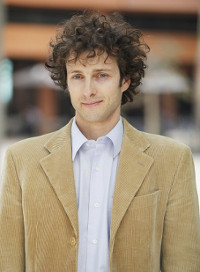Products Incorporating Nanotechnology Expected to Reach US$2.4 trillion by 2015, Says Market Research Firm
 AFM, one of the primary tools for imaging, measuring, and manipulating matter at the ‘nanoscale’, can be used to investigate materials and material properties used in many regionally-relevant industries such as aviation, energy research, petroleum and desalination. According to a recent study by international market researcher Global Industry Analysts, the annual market for products incorporating nanotechnology is expected to reach US$2.4 trillion by 2015. One of the key growth areas remains in building the tools to enable nanoscale research and to help companies exploit nanoscale properties and discoveries, adds an industry report.
AFM, one of the primary tools for imaging, measuring, and manipulating matter at the ‘nanoscale’, can be used to investigate materials and material properties used in many regionally-relevant industries such as aviation, energy research, petroleum and desalination. According to a recent study by international market researcher Global Industry Analysts, the annual market for products incorporating nanotechnology is expected to reach US$2.4 trillion by 2015. One of the key growth areas remains in building the tools to enable nanoscale research and to help companies exploit nanoscale properties and discoveries, adds an industry report.
Organized in collaboration with Asylum Research, the Royal Society of Chemistry (RSC), and the Laboratory of Energy and Nano Science (LENS) at Masdar Institute, the workshop titled ‘Atomic Force Microscopy for Energy and Environmental Applications — A Middle Eastern Perspective’ will be held from 20-21 May at Masdar Institute campus. It aims to attract fresh and experienced AFM scientists from across the GCC region for sharing research experience and knowledge. The deadline for submission of abstracts for poster presentation is 15 May and the best poster will receive an award.
The workshop will be addressed by eight professionals in total including four faculty members from Masdar Institute. Dr. Matteo Chiesa, Associate Professor at LENS, Masdar Institute, will be joined by Dr. Jason Cleveland, co-founder and CEO of Asylum Research, Dr. Arvind Raman, an Associate Professor in the School of Mechanical Engineering and the Birck Nanotechnology Center at Purdue University, USA, and Dr. Neil Wilson, Associate Professor in condensed matter physics at the University of Warwick, UK.
Dr. Matteo Chiesa will present the effort of his group at LENS to determine the relevance of capillary interactions on slight variations of AFM tip size and demonstrate robust control and even the ability to identify the most elusive dissipative mechanisms that are thought to occur at the nanoscale. Dr. Neil Wilson’s research is currently focused on the structural, mechanical and electrical properties of graphene and organic semiconductors. Dr. Cleveland has to his credit numerous publications on the physics of AFM and is a co-inventor on many AFM patents.
Dr. Chiesa said: “The workshop will highlight the importance of surface science for many of the industrial sectors in the UAE. AFM is the one of the most utilized instruments to study surfaces. Nowadays many devices we use employ material engineered with specific nanoscale features. The common denominator for all of these devices is the overwhelming role that the surface plays. This is the case for membranes, oil recovery and energy research in general. We hope researchers from across the region will benefit from this workshop.”
Other researchers from Masdar Institute will also be leading various sessions. They include Dr. Tewfik Souier who will speak about ‘How to Achieve High Electrical Conductivity in Aligned Carbon Nanotube Polymer Composites’ and Dr. Sergio Santos who will highlight ‘The Aging of a Surface and the Evolution of Conservative and Dissipative Nanoscale Interactions. Karim Gadelarab, will speak on ‘Single Cycle AFM Force Reconstruction: Probing the Time Domain’.
Asylum Research’s scientists will also demonstrate a variety of scanning techniques and AFM fundamentals with their Cypher™ and MFP-3D™ AFMs. Two lab sessions – on ‘High resolution imaging’ and ‘Nanomechanics – AM-FM Imaging’ are also scheduled as part of the workshop.
Leaders in Scanning Probe Microscopy (SPM) and AFM technology, Asylum Research has set the industry standard for technological innovation both for imaging and characterizing many properties of surfaces and structures at the nanoscale. The company’s AFM/SPMs are used by academic and industrial customers across the world for a wide range of materials and bioscience applications.
The largest organisation in Europe for advancing the chemical sciences, the RSC is supported by a worldwide network of members and an international publishing business. The organization’s activities span education, conferences, science policy and the promotion of chemistry to the public.
Serving as a key pillar of innovation and human capital, Masdar Institute remains fundamental to Masdar’s core objectives of developing Abu Dhabi’s knowledge economy and finding solutions to humanity’s toughest challenges such as climate change.
Established as an on-going collaboration with the Massachusetts Institute of Technology (MIT), Masdar Institute integrates theory and practice to incubate a culture of innovation and entrepreneurship, working to develop the critical thinkers and leaders of tomorrow. With its world-class faculty and top-tier students, the Institute is committed to finding solutions to the challenges of clean energy and climate change through education and research.